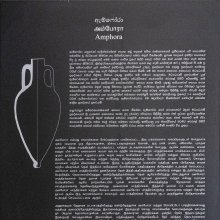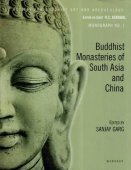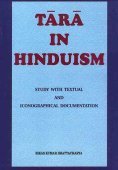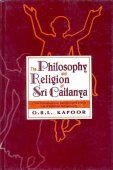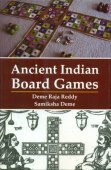Nere, Mere, Mèrè, Néré, Nērē: 2 definitions
Introduction:
Nere means something in biology, Tamil. If you want to know the exact meaning, history, etymology or English translation of this term then check out the descriptions on this page. Add your comment or reference to a book if you want to contribute to this summary article.
Images (photo gallery)
(+2 more images available)
Biology (plants and animals)
Source: Google Books: CRC World Dictionary (Regional names)Mere in Nigeria is the name of a plant defined with Pennisetum glaucum in various botanical sources. This page contains potential references in Ayurveda, modern medicine, and other folk traditions or local practices It has the synonym Cenchrus spicatus (L.) Cav. (among others).
Example references for further research on medicinal uses or toxicity (see latin names for full list):
· Taxon (1980)
· Phil. J. Sci. (1912)
· Journal of Cytology and Genetics (1997)
· J. Wuhan Bot. Res. (1985)
· Bulletin, Division of Agrostology United States Department of Agriculture (1897)
· Botanicheskii Zhurnal SSSR
If you are looking for specific details regarding Mere, for example side effects, pregnancy safety, extract dosage, diet and recipes, health benefits, chemical composition, have a look at these references.

This sections includes definitions from the five kingdoms of living things: Animals, Plants, Fungi, Protists and Monera. It will include both the official binomial nomenclature (scientific names usually in Latin) as well as regional spellings and variants.
Languages of India and abroad
Kannada-English dictionary
Source: Alar: Kannada-English corpusNere (ನೆರೆ):—
1) [verb] to join or come together; to associate (with another).
2) [verb] to have or engage in sexual intercourse.
3) [verb] to come together in a large number to form a crowd; to crowd.
4) [verb] to bring together a large number of people, animals, things, etc.
5) [verb] to become one with; to blend perfectly with.
6) [verb] to happen; to occur.
7) [verb] to become spread, distributed, diffused over a wide area.
8) [verb] to behave oneself in a specified way; to deport; to conduct oneself.
--- OR ---
Nere (ನೆರೆ):—
1) [verb] to move here and there; to wander.
2) [verb] to be utterly confused; to get bewildered.
3) [verb] to have impetuous enthusiasm.
--- OR ---
Nere (ನೆರೆ):—
1) [verb] to be completed or become complete.
2) [verb] to develop or grow oneself.
3) [verb] to grow oneself well esp. in a natural processes.
4) [verb] to attain puberty (said of a girl).
5) [verb] to come of age; to attain majority (18 years as per rules).
6) [verb] to become plentiful; to be available in plenty.
7) [verb] to fill to the full.
8) [verb] (time) to elapse.
9) [verb] to be ready, prepared.
10) [verb] to be achieved, accomplished.
11) [verb] to be sufficient; to be as much as is needed.
12) [verb] to be satisfied, contented.
13) [verb] to satisfy; to please.
14) [verb] to be able to.
15) [verb] to be or become appropriate.
16) [verb] to appear; to come to be seen.
17) [verb] to complete; to finish; to accomplish.
--- OR ---
Nere (ನೆರೆ):—
1) [verb] (hair) to become or turn grey.
2) [verb] to become old (as to get grey hair).
--- OR ---
Nere (ನೆರೆ):—
1) [noun] a position or space beside one.
2) [noun] nearness; closeness.
3) [noun] a person or persons who live near another; neighbour.
4) [noun] association; companionship.
5) [noun] an associate; a companion.
6) [noun] help; assistance.
7) [noun] a bundle (as of plant-leaves).
8) [noun] ನೆರೆಕೆರೆ [nerekere] nere kere = ನೆರೆಯವರು [nereyavaru]; ನೆರೆಕೂಟ [nerekuta] nere kūṭa sexual union; copulation; ನೆರೆಯವರು [nereyavaru] nereyavaru people living in the neighbouring houses; neighbours.
--- OR ---
Nere (ನೆರೆ):—
1) [adjective] complete; entire; whole.
2) [adjective] plentiful; abundant.
--- OR ---
Nere (ನೆರೆ):—
1) [noun] the quality or condition of being complete or entire; completeness; wholeness; entirety.
2) [noun] abundance; plentifulness.
3) [noun] he who has the required ability to do, eligibility for or is capable of doing something.
4) [noun] heavy over flowing of water; inundation; flood; deluge.
5) [noun] (fig.) a great flow or outpouring of emotions.
6) [noun] the condition of being complete; completion.
7) [noun] a being able; power to do (something physical or mental); ability; capacity.
--- OR ---
Nere (ನೆರೆ):—
1) [adverb] completely; entirely.
2) [adverb] in a good or satisfactory manner.
3) [adverb] thoroughly, carefully.
4) [adverb] adequately or sufficiently.
5) [adverb] actually; really; genuinely.
--- OR ---
Nere (ನೆರೆ):—
1) [noun] the grey hair.
2) [noun] the old age.
--- OR ---
Nere (ನೆರೆ):—[noun] = ನೆರಿ [neri].
--- OR ---
Neṟe (ನೆಱೆ):—
1) [verb] to be completed or become complete.
2) [verb] to develop or grow oneself.
3) [verb] to grow oneself well esp. by natural processes.
4) [verb] to attain puberty (said of a girl).
5) [verb] to come of age; to attain majority ( 19 years as per rules).
6) [verb] to become plentiful; to be available in plenty.
7) [verb] to fill to the full.
8) [verb] (time) to elapse.
9) [verb] to be ready, prepared.
10) [verb] to be achieved, accomplished.
11) [verb] to be sufficient; to be as much as is needed.
12) [verb] to be satisfied, contented.
13) [verb] to satisfy; to please.
14) [verb] to be able to.
15) [verb] to be or become appropriate.
16) [verb] to appear; to come to be seen.
17) [verb] to complete; to finish; to accomplish.
--- OR ---
Neṟe (ನೆಱೆ):—
1) [adjective] complete; entire; whole.
2) [adjective] plentiful; abundant.
--- OR ---
Neṟe (ನೆಱೆ):—
1) [noun] the quality or condition of being complete or entire; completeness; wholeness; entirety.
2) [noun] abundance; plentifulness.
3) [noun] he who has the required ability to do, eligibility for or is capable of doing something.
4) [noun] over flowing of water; inundation; flood; deluge.
5) [noun] (fig.) a great flow or outpouring of emotions.
6) [noun] the condition of being complete; completion.
7) [noun] a being able; power to do (something physical or mental); ability; capacity.
--- OR ---
Neṟe (ನೆಱೆ):—
1) [adverb] completely; entirely.
2) [adverb] in a good or satisfactory manner.
3) [adverb] thoroughly, carefully.
4) [adverb] adequately or sufficiently.
5) [adverb] actually; really; genuinely.
--- OR ---
Nēre (ನೇರೆ):—[noun] a kind of cereal grass.
--- OR ---
Nēre (ನೇರೆ):—[noun] the first meal of the day usu. a light one; breakfast.
--- OR ---
Mēre (ಮೇರೆ):—
1) [noun] a dividing line between two countries, states, etc. or the land along it; frontier; border.
2) [noun] a limit beyond which going, acting etc. is not possible or not permissible.
3) [noun] a place of protection; a shelter.
4) [noun] meaning or import; intention.
--- OR ---
Mēre (ಮೇರೆ):—[adverb] according to; in a way that is fitting and proper; correspondingly; accordingly.
Kannada is a Dravidian language (as opposed to the Indo-European language family) mainly spoken in the southwestern region of India.
See also (Relevant definitions)
Starts with (+36): Meredappu, Meregale, Meregallu, Meregattu, Merege, Meregedisu, Meregedu, Meregidu, Meremiru, Meresalu, Neravi, Nere sun, Nere vudhvekar, Nerebellakki, Nerebhara, Neredale, Neredom, Neredu, Neredu-pandu, Neregolu.
Ends with: Aninere, Capelvenere, Edenere, Guttunere, Jarenere, Karinere, Kornere, Maduvenere, Mainere, Meynere, Mutinere, Nengue nere, Ner-kotunere, Netenere, Nuggunere, Odanere, Olanere, Sama nere, Samanere, Tabinere.
Full-text (+1091): Ko nere ko, Nengue nere, Kevala, Vacanamatra, Rasabhasa, Ner-kotunere, Potagujara, Takapithya, Vagmatra, Nimittamatra, Uthagira, Nhavaganda, Korada-Daramaha, Goshtishraddha, Jatimatra, Sama nere, Shabdamatra, Nere vudhvekar, Vastumatra, Nere sun.
Relevant text
Search found 381 books and stories containing Nere, Mere, Mèrè, Néré, Nērē, Neṟe, Nēre, Mēre, Nēr-ē, Ner-e; (plurals include: Neres, Meres, Mèrès, Nérés, Nērēs, Neṟes, Nēres, Mēres, ēs, es). You can also click to the full overview containing English textual excerpts. Below are direct links for the most relevant articles:
Tiruvaymoli (Thiruvaimozhi): English translation (by S. Satyamurthi Ayyangar)
Pasuram 7.4.7 < [Section 4 - Fourth Tiruvaymoli (Ali ela)]
Pasuram 2.2.8 < [Section 2 - Second Tiruvaymoli (Tinnan vitu)]
Pasuram 3.2.3 < [Section 2 - Second Tiruvaymoli (Munnir nalam)]
Gobhila-grihya-sutra (by Hermann Oldenberg)
Sivaprakasam (Study in Bondage and Liberation) (by N. Veerappan)
Greatness of liberated self < [Chapter 7 - Liberation]
Concept of Self and its Intelligence < [Chapter 3 - Understanding the Self]
Liberation of self in Shaiva Siddhanta < [Chapter 7 - Liberation]
Chandogya Upanishad (Shankara Bhashya) (by Ganganatha Jha)
Section 7.2 (first khaṇḍa) (ten texts) < [Chapter 8 - Eighth Adhyāya]
Section 6.4 (fourth khaṇḍa) (seven texts) < [Chapter 6 - Sixth Adhyāya]
Section 7.1 (first khaṇḍa) (five texts) < [Chapter 7 - Seventh Adhyāya]
Brahma Sutras (Ramanuja) (by George Thibaut)
Sutra 4.4.8 < [Fourth Adhyaya, Fourth Pada]
Perception does not reveal mere being < [First Adhyaya, First Pada]
Sutra 4.4.7 < [Fourth Adhyaya, Fourth Pada]
Related products
(+5 more products available)



